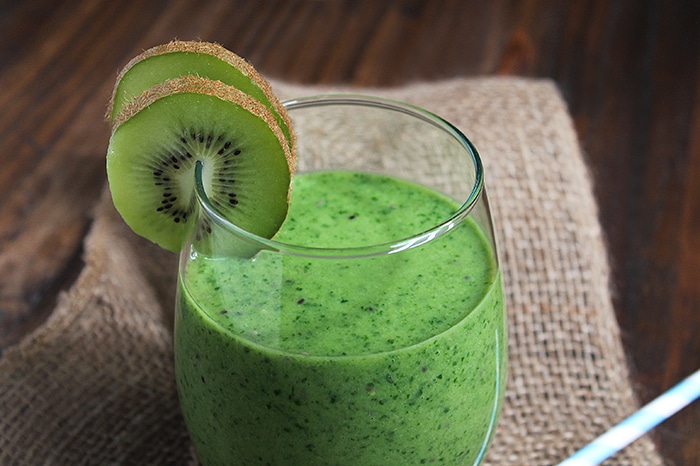
The Surprising Health Benefits of Kelp: It’s not just seaweed
Written by Kristin Buettner
You already know to eat your daily servings of vegetables, but when is the last time you gave any thought to your sea vegetables? Kelp, a type of seaweed, is chock full of good-for-you nutrients that can benefit your health and possibly even prevent disease.
Already a staple in many Asian cuisines, this type of sea algae is a natural source of essential vitamins, minerals, and antioxidants.
Table of Contents
What Is Kelp?
You may have seen this marine plant at the beach. Kelp is a type of large brown seaweed that grows in shallow, nutrient-rich salt water, near coastal fronts around the world. It differs slightly in color, flavor, and nutrient profile from the type you may see in sushi rolls.
Kelp also produces a compound called sodium alginate. This is used as a thickener in many foods you may eat, including ice cream and salad dressing. But you can eat natural kelp in many different forms, including:
- raw
- cooked
- powdered
- in supplements
Nutritional Benefits
Because it absorbs the nutrients from its surrounding marine environment, kelp is rich in:
According to nutritionist Vanessa Stasio Costa, M.S., R.D.N., C.D.N., kelp “is often considered a ‘superfood’ due to its significant mineral content. It’s especially concentrated in iodine, which is important for optimal thyroid function and metabolism.”
The National Institutes of Health (NIH) say that seaweed such as kelp is one of the best natural food sources of iodine, an essential component in thyroid hormone production. A deficiency in iodine leads to metabolism disruption and can also lead to an enlargement of the thyroid gland known as goiter.
But beware of too much iodine. Overconsumption can create health issues, too. The key is to get a moderate amount to raise energy levels and brain functioning. It is difficult to get too much iodine in natural kelp but this could be an issue with supplements.
Calling All Calcium

Did you know that kelp has more calcium than vegetables like kale and collard greens?
Stasio Costa also notes that kelp contains notable amounts of…
The benefits of these vitamins and nutrients are substantial. B vitamins, in particular, are essential for cellular metabolism and providing your body with energy. According to UCSF Medical Center, kelp has more calcium than many vegetables, including kale and collard greens. Calcium is important to maintain strong bones and optimal muscle function.
Disease-Fighting Abilities
Kelp is often considered a ‘superfood’ due to its significant mineral content, says Vanessa Stasio Costa, M.S., R.D.N., C.D.N..
Since inflammation and stress are considered risk factors for many chronic diseases, Stasio Costa says including kelp in one’s diet could have numerous health benefits. Kelp is naturally high in antioxidants, including carotenoids, flavonoids, and alkaloids, which help to fight against disease-causing free radicals.
Antioxidant vitamins like vitamin C, and minerals like manganese and zinc, help to combat oxidative stress and may offer benefits to cardiovascular health. There have been many claims regarding kelp’s abilities to fight chronic disease, including cancer.
Recent studies have explored the role of sea vegetables in estrogen-related and colon cancers, osteoarthritis, and other conditions. Researchers found that kelp can slow the spread of colon and breast cancers. A compound found in kelp called fucoidan may also prevent the spread of lung cancer and prostate cancer. This doesn’t mean that kelp should be used to cure any diseases or be considered a guaranteed protection against disease.
Thyroid, Metabolism and Weight Loss
It turns out the tribal people of the Andes were on to something! Kelp is often referred to as a superfood due to its significant vitamin and mineral content. It is particularly rich in iodine, which is vital to maintaining optimal thyroid and pituitary gland function – glands that control your hormones, body temperature, and metabolism. If you are hoping to shed a few kilos, a strong metabolism is very important and kelp can possibly support this. Kelp also has more calcium than the powerhouse green vegetables we all know like kale and dark leafy greens. Additionally, kelp contains a good amount of iron, manganese, magnesium, copper, zinc,r, niacin, thiamine and vitamins A, D, B12, B6 and vitamin C.
In recent years, researchers have looked into kelp’s potential fat blocking properties. Because kelp contains a natural fiber called alginate, studies suggest that it may halt the absorption of fat in the gut. A study published in Food Chemistry found that alginate could help block fat absorption in the intestines by 75 percent. In order to reap the benefits of alginate, the research team plans to add the thickening compound to common foods such as yogurt and bread.
Sea Real Results! Alginate, a natural fiber found in kelp, can help block fat absorption in the stomach by 75 percent.
Kelp may have great potential for diabetes and obesity, although research is still preliminary. A study published in the journal Diabetes, Obesity and Metabolism found that a compound in the chloroplasts of brown seaweed called fucoxanthin may promote weight loss in obese patients when combined with pomegranate oil. Studies also suggest that brown seaweed may influence glycemic control and reduce blood glucose levels, benefitting people with type 2 diabetes.
In addition to its potential to slow down fat absorption in the gut, kelp is low in fat and calories.
Detoxifying
Kelp acts as one of the great detoxifiers in the ocean, breaking down chemicals, toxins, and heavy metals. It is also naturally high in antioxidants including carotenoids, flavonoids, and alkaloids that help fight the free radicals that cause disease and infection. Dr. Jarvis practiced medicine until he was in his late 80s. He maintained that the sea offered nutritional and mineral support for the problems appearing in the human body caused by eating only land grown products, especially from soils that are depleted of important essential minerals.
Cancer
More recent studies are now exploring the role of sea vegetables in estrogen-related cancers like breast, ovarian, endometrial, colon cancers and arthritis 1. It was concluded that kelp may be very supportive to those with such cancers. Kelp also contains fucoidan, a sulfated polysaccharide that has shown great promise in research into preventative and natural therapies for various cancers. Kelp is an alkaline food, which helps to maintain a healthy acid-alkaline balance – an important factor in maintaining optimal health and prevention of cancer formation. The Japanese people who have diets naturally high in kelp have one of the lowest breast, ovarian and endometrial cancer rates in the world.
Reproductive systems
The normal growth and function of the reproductive organs, particularly in women, requires the presence of iodine in the diet. Iodine deficiencies in pregnant women can cause brain development delays in the fetus and even stillbirth. If you suffer from endometriosis – kelp may help reduce the pain experienced with this condition.
In April 2011 the BBC released a report that suggested that iodine deficiency could become endemic. They studied more than 700 teenage girls in nine different towns in the UK and more than 2/3 were deficient in iodine, this revelation further raises the importance of considering supplementing your diet with kelp.
How to Eat Kelp
Thankfully, you don’t need to go diving in the ocean to reap the benefits. Kelp is available in a variety of forms.
Bacon Seaweed-Love the nutritional benefits of seaweed, but can’t stand the taste? Scientists from Oregon State University have developed a new strain of seaweed that tastes like bacon when it’s cooked, yet retains all of the nutrients of seaweed.
Nutritionist Lisa Moskovitz, R.D., C.D.N., C.P.T., recommends that you try to eat your nutrients, versus taking them in supplement form. She suggests including kelp in a balanced diet with plenty of vegetables, from both the land and sea. Kelp can be one small part of a broader healthy diet that includes a variety of unprocessed, nutrient-dense foods.
Moskovitz says that one of the easiest ways to incorporate kelp into your diet is to add an organic, dried variety into soups. You could also use raw kelp noodles in salads and main dishes or add some dried kelp flakes as seasoning. It is usually found in Japanese or Korean restaurants or grocery stores and can be enjoyed cold with oil and sesame seeds, hot in a soup or stew, or even blended into a vegetable juice.
Salt replacement
Kelp is widely available now as a nutritional supplement and can be included as part of a healthy balanced diet where plenty of unprocessed vegetables, fruits, and other good quality nutritious food choices, along with plenty of water are consumed daily. You can add kelp powder as a seasoning in stews, stir fry, soups, meats and fish or sprinkled cold onto salads and noodles or even added to smoothies or juices. It has a salty taste making it great as a seasoning. It is a good way for people looking to reduce salt in their diet, for blood pressure reasons, to find an alternative way to season their foods. Iodine is sourced naturally through eating fish, radishes, carrots, spinach, strawberries, cabbage and onions, but we often don’t eat enough of these foods.
It is important you don’t go overboard with kelp as too much iodine can aggravate the thyroid, particularly if you suffer from hyperthyroidism. If you are already being treated for a thyroid condition by your doctor or health professional, be sure to check the interaction of kelp on the medications you are taking. If you are pregnant or breastfeeding, again seek the advice of your medical practitioner.
Kelp also absorbs toxins found in the seawater it is harvested from, so it is important to seek products that have been sourced locally in New Zealand and are tested for heavy metals. The even better news is that kelp is a very sustainable plant, growing over 50cms per day, so once it has been harvested it can completely regenerate in 10 days and be ready to harvest again.
Too Much of the Good Stuff?
Health advisers warn that ingesting concentrated amounts of kelp can introduce excessive amounts of iodine to the body. This can overstimulate the thyroid and cause harm. There are significant health risks to consuming excessive iodine. It’s important to only eat kelp in moderation, and it should be avoided by those suffering from hyperthyroidism.
Nutritionist Stasio Costa notes that because kelp and other sea vegetables take up minerals from the waters they inhabit, they can also absorb dangerous heavy metals such as arsenic, cadmium, and lead. She recommends seeking out certified organic versions of sea vegetables and to look for packages that mention that the product has been tested for arsenic.
Always consult a health professional before beginning any supplementation regimen.






